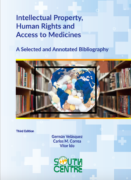Europe
Knocking Down Business-related Human Rights Abuses with a Feather: Is the European Corporate Sustainability Due Diligence Directive Sufficient to Tackle Corporate Impunity?
By Daniel Uribe
In April 2024, the European Parliament approved the Corporate Sustainability Due Diligence Directive (CSDDD), aiming to ensure that European firms and their partners uphold human rights and environmental standards in their supply chains. This Directive applies to large EU and non-EU companies, with a phased implementation starting in 2027. The CSDDD mandates the integration of due diligence in corporate policies and the development of transition plans aligned with the Paris Agreement. Despite these advancements, the Directive’s scope and civil liability provisions are limited to effectively hold corporations accountable for human rights abuses. The ongoing negotiations on an International Legally Binding Instrument on Business and Human Rights offer an opportunity to adopt common standards on due diligence and jurisdiction to improve access to justice and remedies for victims of corporate-related abuses.
(more…)
Could COVID-19 trigger ‘localizing’ of international investment arbitration?
By Danish
In light of the challenges and travel restrictions due to the COVID-19 pandemic, many developing countries have been unable to effectively participate in international investment arbitration proceedings, traditionally held in locations like Washington D.C. and The Hague. To ease the heavy burdens currently being placed on States and ensuring investor confidence, this Policy Brief argues for the ‘localization’ of investor-State dispute settlement (ISDS) proceedings in host States and regions where the investment is actually located. It highlights the various advantages that localizing ISDS can bring, and the different regional initiatives already working towards this purpose. The brief also considers relevant legal and policy aspects, and seeks to provide concrete suggestions for the localization of ISDS as a small step towards the holistic reform of international investment arbitration.
(more…)
Global Cooperation Instead of Confrontation
By Peter Lunenborg and Fernando Rosales
The world faces many challenges besides the current coronavirus pandemic, including hunger, environmental destruction, climate change, the proliferation of nuclear weapons and rising inequality. Global cooperation is necessary to address these challenges and, in some areas, the global community is responding to them. Calls to form a coalition against a particular country, such as from the United States towards China, divert attention from the problems the world is facing and hamper progress in addressing these global challenges. History taught us that the best way to resolve our differences and to move forward is through dialogue and cooperation, not confrontation.
(more…)
Spotlight: Europe
Regional Round-up on progress in implementing the Beijing Platform for Action in light of the 25th anniversary of the platform
(more…)
Intellectual Property, Human Rights and Access To Medicines: A Selected and Annotated Bibliography (3rd Edition)
 About the Book:
About the Book:
The South Centre seeks to provide appropriate technical assistance and country support to developing countries, within comprehensive and coherent national IP strategies to promote implementation of the TRIPS Agreement that is consistent with the protection of public health and the promotion of access to medicines. This selected and annotated bibliography has been prepared to assist developing countries to implement IP policies and regulations consistent with development goals and public health principles. The growing volume of literature on the issue of IP, R&D, human rights and access to medicines can help developing countries to find the opportunities and room for manoeuvre to protect their citizens from the unhealthy environment created by international trade rules. This bibliography is not an exhaustive list but it highlights some of the most pertinent works from the South views and perspectives. The selected references are a valuable instrument for those interested in promoting universal access to medical innovation.
Authors: Germán Velásquez, Carlos M. Correa and Vitor Ido
(more…)
Intellectual Property and Plant Protection: Developments and Challenges in Asia
Dr. Kamalesh Adhikari
The creation of legal regimes to protect exclusive intellectual property rights over new plant varieties is not a recent phenomenon. National laws that recognise intellectual property for plant varieties originated decades ago in North America and Europe. The first of these laws took the form of a specialised plant patent regime, which the United States of America introduced in the form of the Plant Patent Act in 1930. A few decades later, laws to protect plant varieties as intellectual property appeared in the form of national plant breeders’ rights regimes in a number of developed countries, initially in Europe and later in other regions. A major motivation for these developed countries to embrace plant breeders’ rights regimes was the advent of the 1961 Convention of the International Union for the Protection of New Varieties of Plants (the UPOV Convention). Mainly after the mid-1990s, an increasing number of developing and least-developed countries in Asia as well have begun either to draft or implement national legislation to grant intellectual property for plant varieties, albeit in ways that are distinct from how developed countries of North America and Europe have conceptualised their national plant breeders’ rights laws. (more…)













 About the Book:
About the Book: